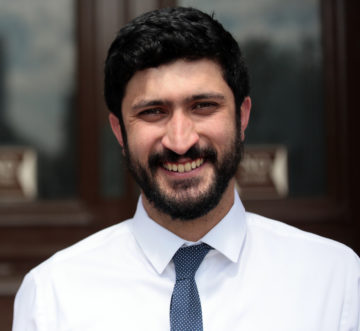Last year, police groups killed marijuana reform in Texas, which both political parties now support, with a Reefer Madness-style misinformation campaign. But a legislative accident paved the way for a mass experiment in marijuana decriminalization in the state.
A new law legalizing hemp changed the legal definition of marijuana in Texas; any cannabis plant with more than 0.3 percent THC is marijuana, any less and it’s legal hemp. That’s made prosecuting possession more difficult—the easiest way to tell the two apart is through expensive testing equipment—so when the law went into effect in June, some Texas district and county attorneys simply began tossing petty possession cases. According to the Texas Tribune, misdemeanor marijuana prosecutions in the state have dropped by more than half since the law changed last year. “And… the sky isn’t falling,” tweeted state Representative Joe Moody, an El Paso Democrat who has pushed pot decriminalization at the legislature for the past three sessions. “While unintentional, it shows that decrim works for TX.”
So some Texans want to lock in the new status quo before officials “fix” the problem. On Friday, Austin City Council Member Greg Casar filed a draft resolution that would block city police from using any resources on lab testing for low-level marijuana possession, an attempt to render those cases unprosecutable. The resolution, co-sponsored by three other council members, would also direct police to eliminate enforcement and penalties for misdemeanor possession unless there’s an immediate threat to someone’s safety.

Under the proposal, Austin police could still stop someone suspected of possession, confiscate their weed, and write a citation—but it would largely be meaningless. “My hope and sense is that this will end all penalties [for low-level marijuana possession],” Casar says. “You might still get a piece of paper, but since it’s not being prosecuted, that piece of paper is not going to mean much.” He says the cratering of petty pot possession cases across Texas highlights “the very clear march toward legalization.”
Casar’s proposal builds upon past Austin reforms, which illustrated—even before the Legislature’s hemp mishap—the uneven patchwork of marijuana enforcement across Texas. Austin was one of the first Texas cities that permitted officers to cite rather than arrest people for low-level pot cases after the Legislature gave jurisdictions the option in 2007. In recent years, prosecutors in Travis County and most of Texas’ major cities have adopted diversion programs meant to blunt the life-altering consequences of a misdemeanor drug charge. In 2018—driven by data that showed officers used their discretion to arrest black defendants for petty crimes at a rate more than double that of white or Latinx people—Austin further limited the ability of police to arrest people for petty charges like misdemeanor marijuana possession that could be handled with a citation.
Heather Fazio, a longtime advocate for cannabis reform and director of Texans for Responsible Marijuana Policy, says the state is now at a crossroads when it comes to marijuana. While the hemp law got prosecutors across Texas to abandon petty cases (at least for now), the differences in how jurisdictions inside the state handle pot have never been more stark. In the past, location within the state determined the severity of low-level marijuana possession. Now, where someone is caught with a joint could determine if there is any punishment at all.
“It’s a good thing that fewer people are being prosecuted, but ultimately what we need is a statewide policy that eliminates the threat of arrest, jail, and a criminal record for possessing small amounts of cannabis,” Fazio says. “What the hemp bill has done is to create change at the local level in Texas; it’s got people talking about cannabis not in a scary way but in a practical way that highlights just how harsh and unreasonable our current policies are.”
Casar says citations for petty pot possession in Austin have dropped even further since the hemp law took effect, in part because officers know citations won’t go anywhere with the DA’s office. He hopes the resolution, which Austin City Council will consider at its first meeting of the year on January 23, highlights a path other Texas cities can take in the face of state inaction.
“Frankly, we’re trying to maintain what’s happening right now, which is that [marijuana] citations are going nowhere,” Casar tells the Observer. “Why would we go back to a world where these citations go somewhere?”
Read more from the Observer:
-
Trump Has Kneecapped Another Environmental Safeguard. Could That Spur Expanded Uranium Mining in South Texas? The president seeks to weaken a 50-year-old federal law requiring regulators to weigh environmental risks before approving major projects.
-
The Return of Karl Rove: Political strategist and pundit Karl Rove was an architect of the GOP takeover of Texas in the 1980s. Now, he’s come home to ensure Trump doesn’t unravel his legacy.
-
A Radical Idea: Vote Your Conscience in the Presidential Primary: Democrats spend a lot of time thinking about what Democratic voters might be thinking about. Columnist Christopher Hooks argues that this focus on electability isn’t how primaries are supposed to work.







